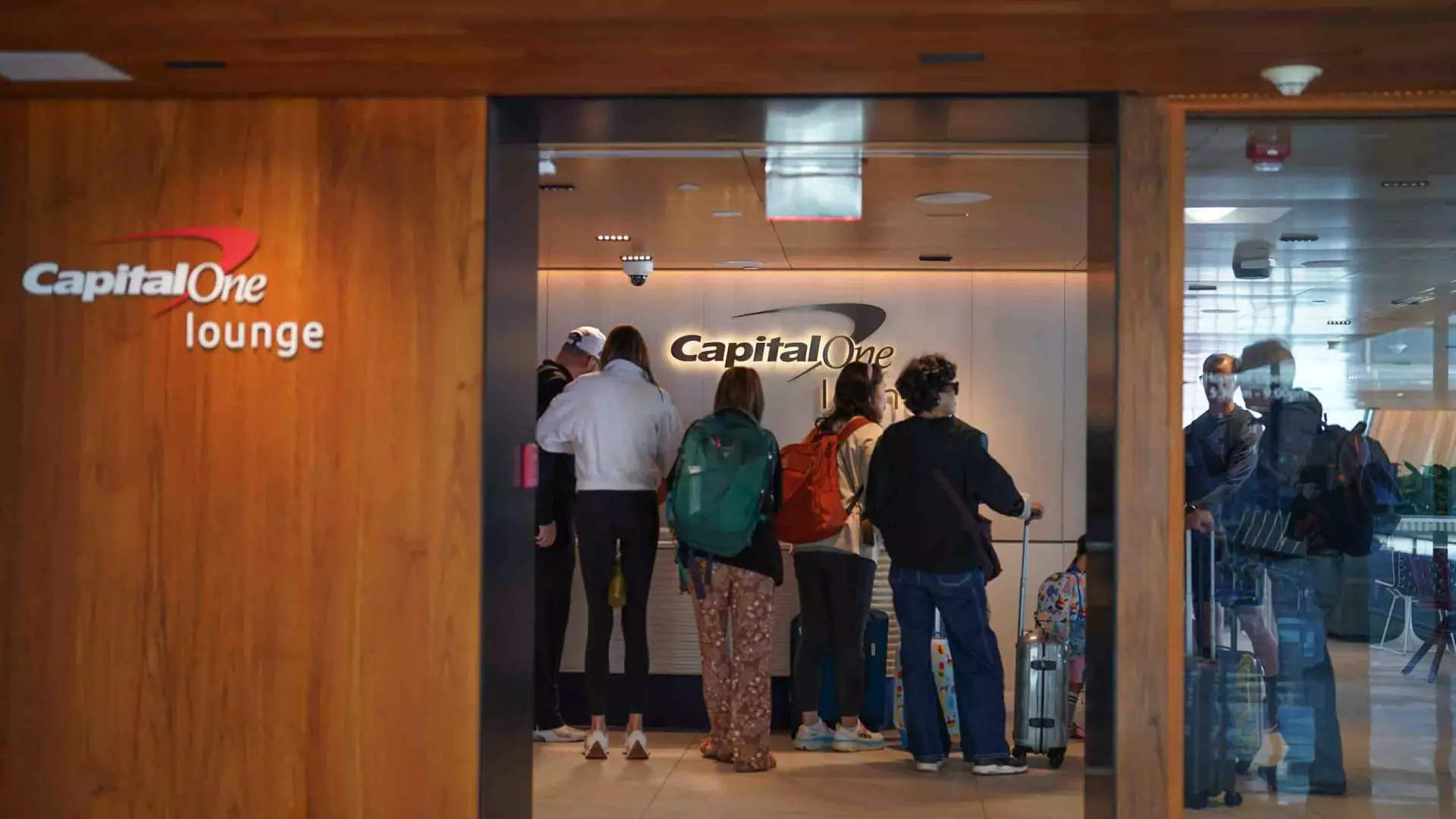In a world where the average traveler anticipates budget-friendly flights, the rising costs associated with enjoying basic amenities, such as airport lounge access, present a stark contradiction. Recent changes implemented by Capital One highlight this troubling trend. With the company placing financial restrictions on those who wish to share their lounge experience with family and friends, the once-convenient privilege of enjoying premium travel amenities is becoming entrenched behind a paywall. Charging $125 annually per additional cardholder and exorbitant fees for guests reflects not just a monetization of convenience but a shift towards treating what was once accessible as a luxury.
The Illusion of Exclusivity and Comfort
As lounges in airports grow increasingly popular, they have begun to resemble bustling cafes – a far cry from the peaceful retreats they were intended to be. Capital One’s statement echoes across the industry: while their intent is to preserve a “great airport lounge experience,” the new fees signal that access to comfort and space is now decidedly commodified. This shift doesn’t simply reflect an effort to control access; it reveals a stark truth about the current state of capitalism. Premium services are being redefined as privileges for the affluent, marginalizing everyday travelers. The notion of lounges being serene havens for weary travelers is being overshadowed by economically motivated policies.
Challenger Brands Face Similar Challenges
Capital One is perceived as a challenger brand in the realm of airport lounges, but this image is becoming increasingly fragile as they mirror the pricing strategies of more established players in the industry. By emulating American Express and JPMorgan Chase, which have long set a precedent for exclusivity through spending requirements, Capital One shows that even the underdogs can succumb to the allure of heightened earnings. By demanding a $75,000 annual expenditure for basic guest access, these companies are shaping a travel experience that prioritizes profit over hospitality. The irony is not lost on travelers: a financial threshold is dictating their social interactions during travel.
Growth vs. Accessibility: A Balancing Act
While credit card companies have expanded their lounges to keep pace with surging demand, the ensuing crowding is a sign of oversaturation rather than success. Capital One and others are caught in a paradox, wherein their popularity might inspire critical income but simultaneously erodes the charm of their brand. The rush to create luxury lounges, as seen with Delta’s recent policy changes catering to a premium class, raises the question: is true luxury becoming a barrier to entry for the average consumer? The reverberations of these decisions suggest that aspirationally-minded brands may inadvertently alienate their core demographic in pursuit of higher income margins.
Rebranding the Travel Experience
Airlines and credit card issuers are actively redirecting their efforts toward creating a rebranded travel experience. As seen with Delta unveiling its exclusive Delta One lounge aimed at high-flyers, there’s a clear trend toward catering to the affluent. This obsession with high-end customer experiences starkly contrasts with how objectives for airline rewards programs were originally established — to foster loyalty among all, not just a select few. In catering so exclusively to wealthier clients, the industry risks losing touch with the very customers whose loyalty they depend upon.
The Ripple Effect on Class Dynamics
The shift towards limiting lounge access based on spending thresholds inevitably highlights the class dynamics that underpin air travel today. More than ever, the wealth gap is apparent even in leisure experiences. While it’s easy to argue that good service comes at a cost, there’s a moral responsibility to provide an equitable experience across economic classes. The rise of additional fees for amenities breeds an environment that perpetuates inequality in travel experiences, transforming what should be a universal pleasure into a signifier of status.
A Road Forward: Addressing the Disconnect
As we navigate an era increasingly marked by financial barriers and exclusivity, the paths ahead for companies like Capital One require genuine reflection. While it’s undeniable that operational costs must be met, imposing steep fees under the guise of preserving quality demonstrates indifference to the broader context of consumer experiences. The challenge for brands moving forward involves crafting a balanced approach—one that respects both the need for economic viability and the ethos of accessibility for all travelers, not just those who can afford the elevated price tag.

